The information provided herein is for informational purposes only. Please refer to our disclaimer for more details..
- Why dogs dig?
- Top 10 solutions to stop and keep your dog from digging under fence
- 1.Provide adequate exercise to prevent dog from digging
- 2.Supervise and correct unwanted behavior
- 3.Training and positive reinforcement
- 4.Create a digging zone
- 5.Create a physical barrier to stop a dog reach the fence
- 6. Install motion-activated sprinklers near the fence line
- 7.Use scents and Anti-Digging sprays
- 8.Secure the base of the fence
- 9.Make physical barriers at the base
- 10.Consult a professional
- FAQ
Why dogs dig?
Digging is a normal and natural behavior for dogs, deeply ingrained in their instincts. However, when that instinct leads them to dig underneath your fence, it can become a source of frustration for dog owners.
The sight of freshly turned earth and the possibility of your furry friend escaping can be a cause for concern. Fortunately, there are effective strategies to prevent and deter your dog from digging under the fence.
- Digging is natural for dogs, but can lead to fence escapes.
- Regular exercise can deter dogs from digging out of boredom.
- Correcting digging immediately with firm commands is crucial.
- Create a digging zone to concentrate your dog's digging instinct.
- Professional help may be needed for persistent dog digging.
Image credits: Unsplash
Understanding why dogs dig is the first step in addressing this issue. Dogs may dig for various reasons, including seeking shelter, chasing prey, escaping boredom, or simply dig for entertainment. Recognizing the underlying cause of their digging can help you tailor your approach to prevent it.
We’ll delve into the root causes of a dog’s digging behavior and equip you with a toolbox of practical solutions to prevent your dog from digging.
Whether you’re a seasoned dog owner or a first-time puppy parent, these insights will empower you to address the issue of dogs digging under the fence effectively, creating a harmonious and secure environment for both you and your beloved canine companion.
Top 10 solutions to stop and keep your dog from digging under fence
1.Provide adequate exercise to prevent dog from digging
Image credits: Unsplash
Providing exercise and playtime for your dog is essential for their well-being and can prevent them from digging up the yard. Dogs have the energy to burn, and when they’re bored or have excess energy, they might dig holes in the yard.
First, remember that dogs need regular exercise. They should go for walks, runs, or playtime every day. When a dog gets enough exercise, they tend to be calmer and less likely to dig because they’re not restless. Make sure the type and amount of exercise match your dog’s breed and age.
Supervised play in the yard is also great for your dog’s mental stimulation. You can play games like fetch or hide-and-seek. Interactive toys that dispense treats or require problem-solving can keep their minds busy. When you play with your dog, you strengthen your bond and distract them from digging under a fence.
By including exercise and supervised play in your dog’s daily routine, you can help prevent digging and have a happier, healthier pet.
2.Supervise and correct unwanted behavior
Image credits: Pixabay
Keeping a watchful eye on your dog while they’re in the yard is crucial in preventing digging behavior. If you happen to catch your dog digging, it’s important to respond promptly.
Use a clear and firm command like “no” or “stop” to stop the digging. Simultaneously, offer an alternative, such as a favorite toy or engaging activity. This redirection not only communicates that digging is undesirable but also provides a positive outlet for your dog’s energy and curiosity.
Consistency in supervision and correction helps your dog understand what’s expected and gradually reduces their inclination to dig in the first place. Don’t leave your dog unsupervised seems like an obvious solution, however, it is vital.
Dog may be digging for various reasons and some can be signs of problems on the other side of the fence, so keep your dog in sight.
3.Training and positive reinforcement
Image credits: Pixabay
Training your dog using commands like “leave it” or “stay” can be a powerful tool in curbing their digging behavior near the fence. Dogs are intelligent animals and can quickly learn to associate certain commands with specific actions.
By consistently teaching and reinforcing these commands in various situations, including near the fence, you can communicate to your dog that digging is not allowed.
The key lies in positive reinforcement. When your dog obeys commands and refrains from digging, promptly reward them with praise, treats, or affection. This positive feedback reinforces the idea that good behavior is rewarded, making your dog more likely to repeat it.
If your dog is already trained to respond to these commands in different contexts, it becomes easier for them to understand that digging is off-limits near the fence. They’ll recognize that the same rules apply throughout their environment, making it a consistent and clear message.
Remember, patience and consistency in training are essential, and over time, your dog will develop a deeper understanding of the boundaries you’ve set.
4.Create a digging zone
Image credits: Pixabay
One effective strategy to discourage your dog from digging under the fence is to create a designated digging area within your yard.
This approach involves setting aside a specific area where your furry friend is encouraged to dig freely. By allocating a defined space for this purpose, you can redirect their digging instincts away from sensitive areas like the fence perimeter.
Enhance the appeal of the digging area by burying toys, bones, or treats in the area. These buried treasures pique your dog’s curiosity and entice them to explore and dig in that specific spot. It’s essential to provide positive reinforcement when they dig in the designated zone, reinforcing the idea that this area is where digging is not only allowed but also rewarded.
This technique not only preserves the integrity of your fence but also channels your dog’s natural instincts into a controlled and enjoyable activity. Make sure this digging pit is away from the fence as the dog could dig a hole that’s quite big.
Another way to encourage your dog to dig in a specific area and not digging in the yard is to install a privacy fence around the digging zone.
5.Create a physical barrier to stop a dog reach the fence
Image credits: Unsplash
To prevent your dog from digging under the fence, consider creating a physical barrier within your yard.
This entails installing a secondary fence or barrier a few feet away from your main fence. This additional buffer zone poses an extra challenge for your dog in their quest to reach the actual fence.
The purpose of this buffer zone is twofold: it adds distance, making it harder for your dog to reach the primary fence, and it creates a clear boundary that signals to your dog the limits of their play area.
By introducing this barrier, you provide a visual and physical deterrent that discourages digging near the fence, helping to maintain the security and integrity of your yard. It’s an effective strategy to safeguard your fence and keep your dog safely contained within your property.
6. Install motion-activated sprinklers near the fence line
Image credits: Unsplash
A smart and innovative solution to deter your dog from digging under the fence is to install motion-activated sprinklers along the fence line.
These sprinklers are equipped with motion sensors that detect your dog’s movement. When your furry friend approaches the fence, the sensor triggers the sprinkler to turn on, releasing a sudden burst of water.
This unexpected water spray startles your dog, creating an immediate deterrent effect. It creates an “invisible fence” around the fence and sends a clear message to the dog. Dogs generally dislike being surprised by water, and this experience makes them think twice about approaching the fence to dig.
Over time, your dog associates the fence area with this startling sensation, ultimately discouraging them from digging in that particular spot. It’s a humane and effective way to maintain the integrity of your fence and ensure your pet stays safely within your yard. The best thing is that this works on almost any cat too.
7.Use scents and Anti-Digging sprays
To deter dogs from digging, you can utilize scents and anti-digging sprays designed specifically for this purpose.
These commercial sprays contain ingredients that emit an unpleasant taste or smell when applied to the areas where your dog digs. Dogs have sensitive noses and taste buds, making them particularly averse to certain odors and flavors.
When these sprays are used as directed, they create a deterrent effect by making the digging area unappealing to your dog. The scent or taste serves as a signal that digging in that spot is not enjoyable.
As a result, your dog is more likely to avoid those areas altogether, preserving your yard and preventing damage to the fence. It’s a convenient and non-harmful method to discourage digging and maintain a harmonious outdoor environment.
Anti-digging sprays are products designed to discourage dogs from digging in specific areas of your yard or garden. They typically contain ingredients that are unappealing or uncomfortable for dogs when they come into contact with them and can stop a dog from digging almost immediately. While the specific formulations may vary among brands, these sprays typically include one or more of the following ingredients:
- Bittering Agents: These sprays often contain bitter-tasting substances, such as denatonium benzoate or Bitrex, which create an unpleasant taste when the dog licks or chews the sprayed area.
- Hot or Spicy Ingredients: Some anti-digging sprays use hot or spicy substances like capsaicin (the compound that makes chili peppers spicy) to deter dogs. These ingredients can irritate a dog’s nose and mouth.
- Citrus Scents: Citrus scents are known to be unpleasant to many dogs. Some sprays use citrus extracts or oils to create a scent barrier that dogs find unappealing.
- Natural Repellents: Some products use natural ingredients like garlic, vinegar, or essential oils (e.g., lemon or eucalyptus) to deter dogs from digging.
To use anti-digging sprays effectively:
- Identify the areas where your dog is digging most frequently.
- Follow the product’s instructions for application, which typically involve spraying or applying the product to the targeted areas and digging spot
- Be consistent with reapplication, especially after rain or if the product wears off.
- Monitor your dog’s behavior and reinforce positive behavior with praise and treats when they avoid digging in treated areas.
While anti-digging sprays can be a helpful tool in discouraging digging behavior, they may not work for every dog breed. Some dogs may not be deterred by the taste or scent, while others may become accustomed to it over time.
In such cases, you may need to combine the use of the spray with other training and prevention methods to effectively stop your dog from digging.
8.Secure the base of the fence
Ensuring the base of your fence is secure is a fundamental step in preventing your dog from digging underneath it. Dogs are experts at finding even the smallest openings, so it’s essential to inspect your fence regularly.
Check for gaps or spaces beneath the fence that your dog might exploit as an escape route. Any openings should be promptly filled with dirt, rocks, or other suitable materials to eliminate the opportunity for your dog to squeeze through. Make sure chain link fence holes are mended and repaired if broken.
Another effective approach is to use deterrents along the bottom of the fence. Placing rocks, bricks, or chicken wire creates an additional obstacle that makes digging more challenging. Dogs often dig because it’s relatively easy, but these deterrents disrupt their digging efforts. By making it more difficult for them to access the soil near the fence, you discourage the behavior.
In some cases, the dog is trying to escape and they sense a potential escape route. By addressing these vulnerabilities and adding deterrents, you not only safeguard your fence but also provide your dog with a secure and well-defined space, reducing the urge to dig and promoting their safety within your yard.
9.Make physical barriers at the base
Implementing physical barriers at the base of your fence is a strategic approach to prevent your dog from digging underneath it.
One effective method is to bury boards vertically just below the surface along the fence line. Dogs dislike the sensation of encountering a solid object while digging, and this tactile feedback can discourage them from pursuing their digging efforts.
The simplest way is to bury the fence deeper in the soil so the dog cannot dig their way under the fence. Although this will not prevent your dog not to dig it is a way to prevent your dog from escaping.
For a more permanent and highly secure solution, consider a concrete footer. By pouring a concrete barrier along the base of the fence, you create an impenetrable obstacle for your dog.
Concrete footers are extremely effective at forcing a dog to stop digging because they offer no give or softness for your pet to dig through. Dog can’t dig through concrete so it’s a bulletproof way to stop dogs dig under fences to reach the bottom of your fence.
An alternative approach involves installing an L-footer. This entails digging a trench along the fence line and burying chicken wire in an L-shape, with one part lying flat on the ground and the other part facing away from the yard, all covered with soil.
This configuration makes it challenging for dogs to dig under, as they encounter the sturdy wire barrier that prevents them from accessing the other side.
These methods provide robust solutions to keep your dog safely within your yard while protecting your fence and garden from the digging instinct. Depending on your specific needs and preferences, you can choose the option that best suits your situation. Just make sure your dog doesn’t hurt his paws while trying to dig through.
10.Consult a professional
If your dog’s digging behavior proves to be severe or persistent, seeking the guidance of a professional dog trainer or behaviorist can be a wise decision.
These experts possess specialized knowledge and experience in understanding and addressing complex canine behaviors.
A professional will conduct a thorough assessment of your dog’s specific digging tendencies, considering factors like breed, age, and underlying causes. They can then create a tailored behavior modification plan designed to target the root of the issue.
Finding the reason why your dog is digging gives the professionals a foundation on how to teach your dog not to.
These experts utilize positive reinforcement techniques, providing a safe and effective way to redirect your dog’s behavior. They can teach you how to communicate effectively with your pet, ensuring that your training efforts are consistent and aligned with your dog’s needs.
Moreover, professional trainers and behaviorists offer invaluable support and guidance throughout the process, helping you achieve lasting results and a well-adjusted canine companion. Their expertise can make a significant difference in curbing persistent digging habits and improving your dog’s overall well-being.
FAQ
What is a natural deterrent to stop dogs from digging?
A natural deterrent is something that naturally discourages or stops a particular behavior or action. In the context of dogs and digging, a natural deterrent could be a substance or method that dogs naturally find unpleasant, like a strong scent or an uncomfortable texture, which makes them less likely to engage in digging behavior.
These natural deterrents are used to discourage dogs from digging in specific areas of your yard or garden without causing harm to the dog.
Physical deterrents are fences, wires, rocks, and others while some scents that dogs find unpleasant include citrus peels, coffee grounds, bitter sprays, some aromatic plants, and cayenne pepper.
How do I keep my neighbor’s dog dig under the fence?
Stopping your neighbor’s dog from digging under your fence can be a bit challenging since it involves someone else’s pet. However, there are some steps you can take to address the issue:
- Talk to Your Neighbor: Start by having a friendly conversation with your neighbor. Explain the problem and express your concerns about their dog digging under your fence. They may not be aware of the issue or may not realize how disruptive it is to you.
- Offer Solutions: Suggest potential solutions to your neighbor. They may not know how to prevent their dog from digging, so offer ideas like reinforcing their fence, providing more exercise and mental stimulation for the dog, or using natural deterrents in their own yard.
- Fence Repair: If your neighbor is uncooperative or if the dog continues to dig under the fence, consider reinforcing your side of the fence. You can install barriers like a concrete footer, L-footer, or chicken wire at the base of your fence on your property to prevent the dog from digging through.
- Consult Local Authorities: If the issue persists and your neighbor is unresponsive, check your local ordinances and regulations regarding nuisance pets. In some cases, you may need to involve animal control or local authorities to address the problem.
Does cayenne pepper keep dogs from digging?
Dogs dislike cayenne pepper and similar spicy substances because they contain a compound called capsaicin, which is responsible for the fiery sensation humans experience when consuming spicy foods. While capsaicin doesn’t affect dogs in the same way it does humans, it still produces sensations that can be highly unpleasant for them.
It’s important to note that while cayenne pepper can deter dogs from certain areas or objects due to its unpleasantness, it should be used with caution. Direct contact with capsaicin can cause irritation to a dog’s eyes, nose, and skin.
If you decide to use cayenne pepper as a deterrent for digging or other unwanted behaviors, use it sparingly and consider alternatives like commercial dog repellent sprays that are specifically designed to be safe for pets.
Always consult with your veterinarian or a professional dog trainer if you have concerns about using any substance to modify your dog’s behavior.
574views
Share on FacebookAnyone who has read 'The Pokey Little Puppy' knows that the only way to stop dogs digging under fences is to take their pudding away from them! ;)
Anyone who has read 'The Pokey Little Puppy' knows that the only way to stop dogs digging under fences is to take their pudding away from them! ;)

 Dark Mode
Dark Mode 

 No fees, cancel anytime
No fees, cancel anytime 



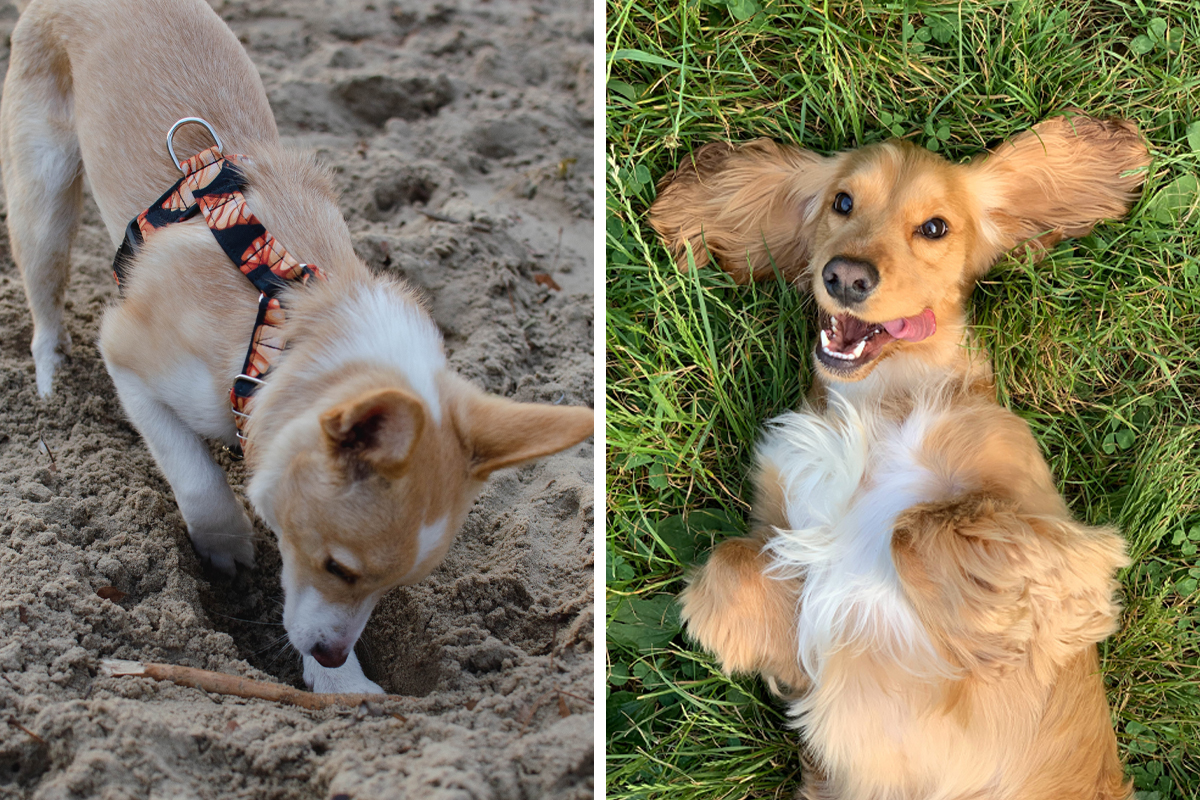


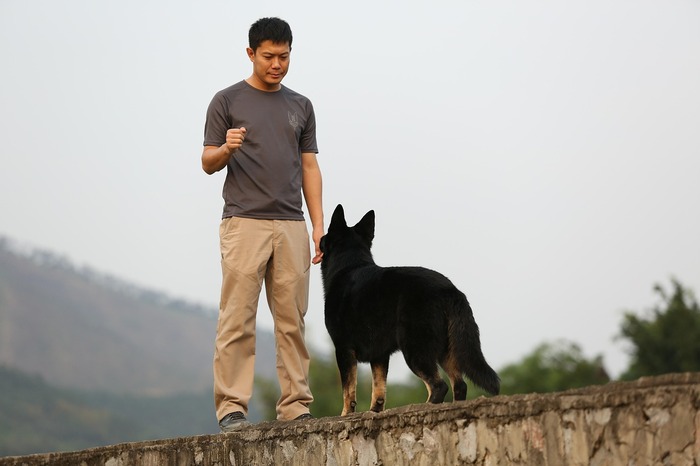

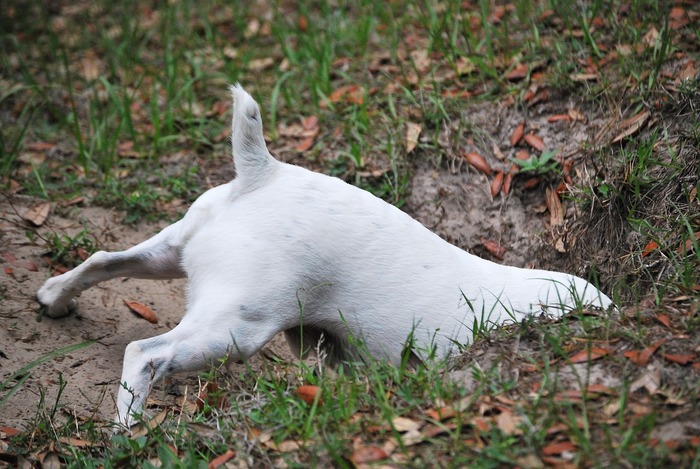
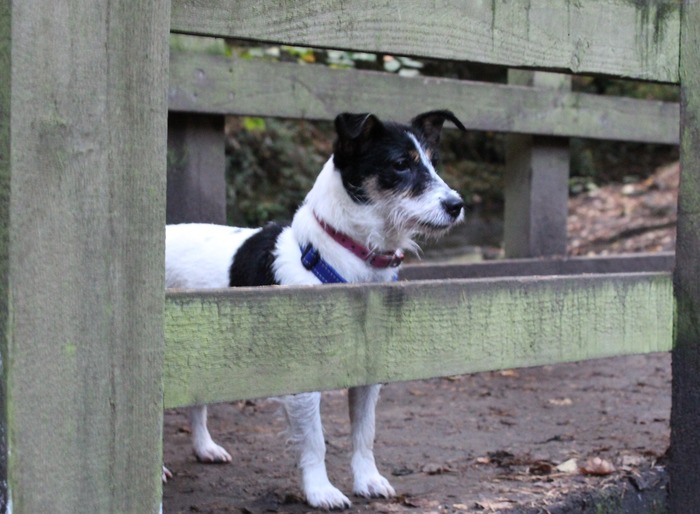
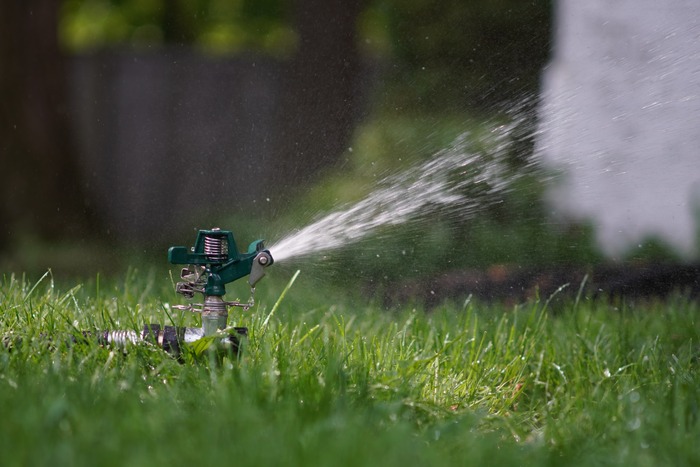





















![Dad Of Two Asks, “Am I The [Jerk] For Leaving My Date At The Bar After She Insulted My Kids?”](https://www.boredpanda.com/blog/wp-content/uploads/2025/03/bar-kids-date_wide-Cover-67d277766e3ca.jpg)




















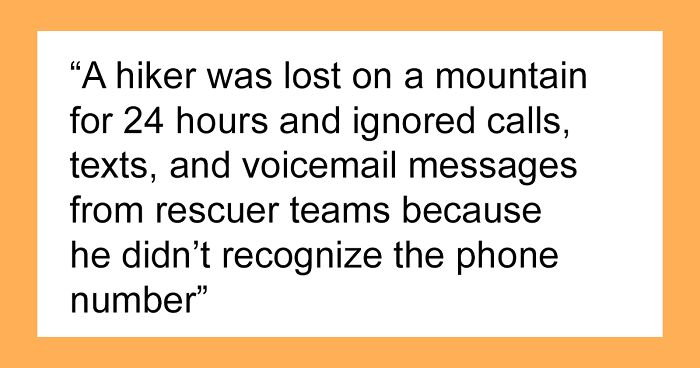
13
4